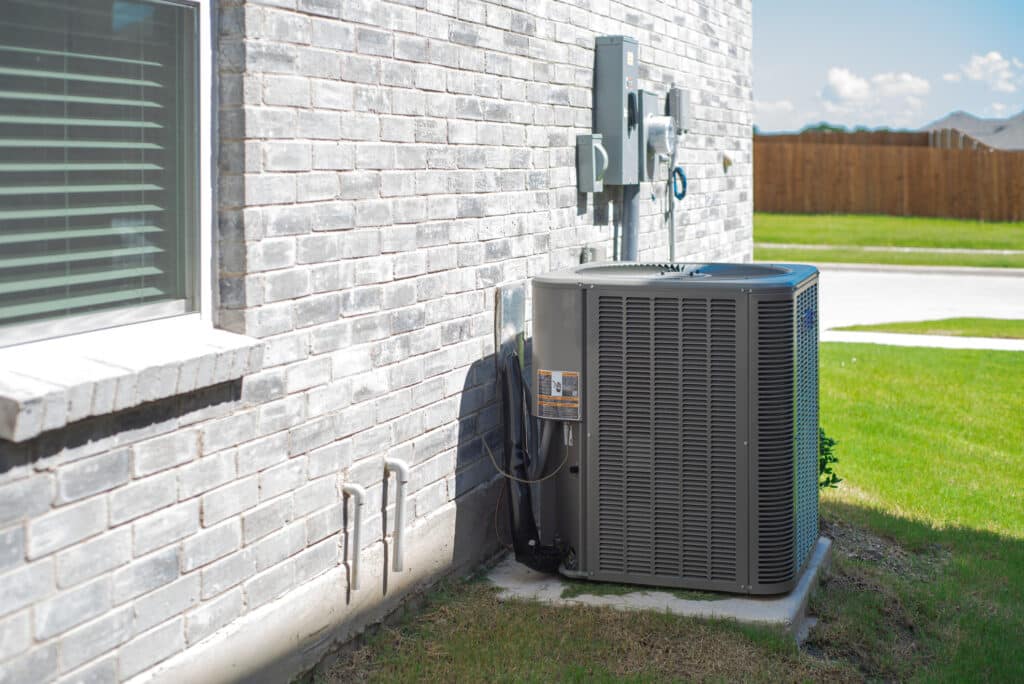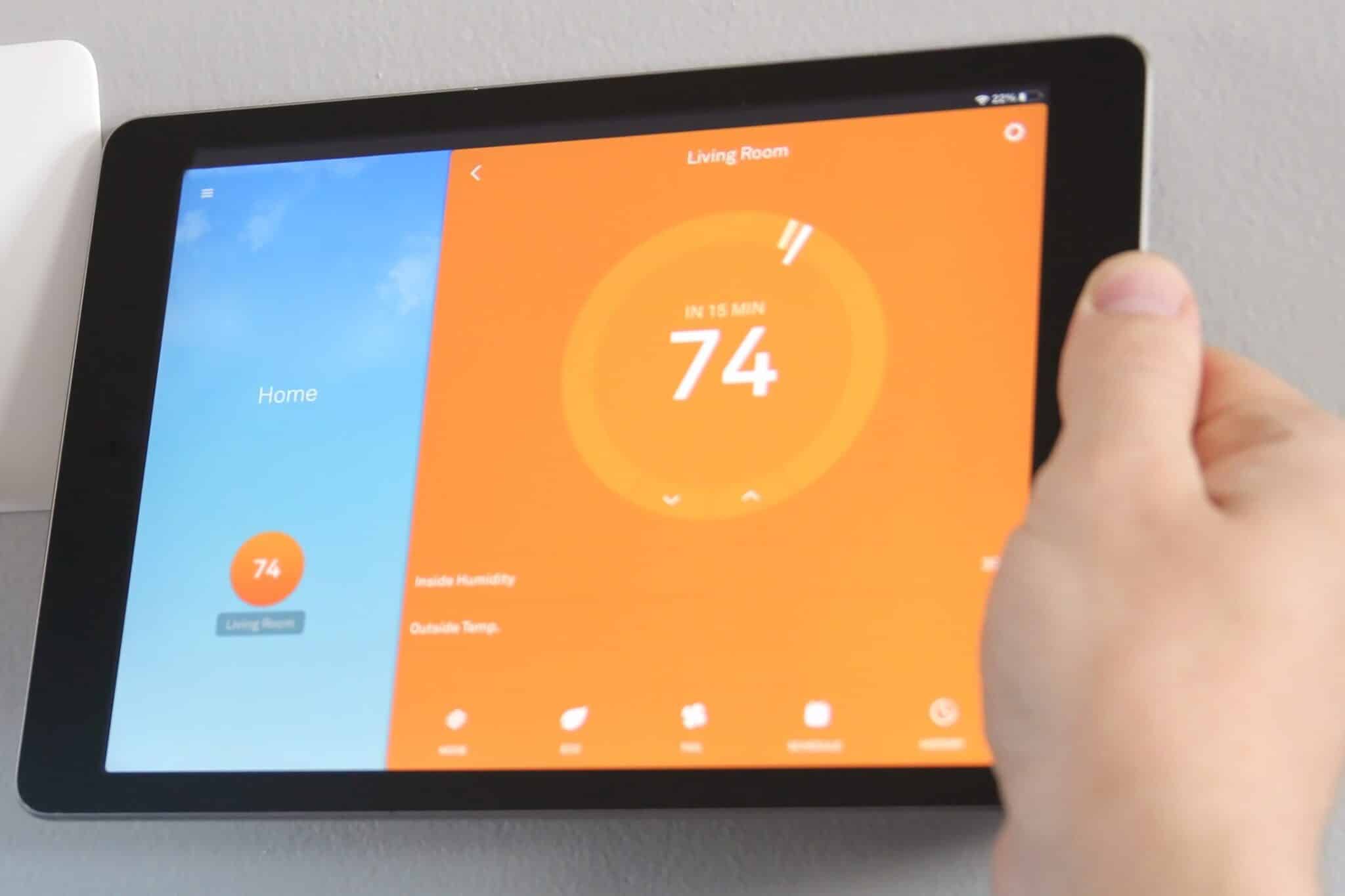
Learn How Autonomous HVAC Systems Work
Autonomous HVAC systems are at the forefront of this shift, introducing a smarter way to manage indoor temperatures. These advanced systems leverage smart sensors, artificial intelligence, and real-time data to optimize heating, cooling, and airflow. This innovation not only enhances comfort but also significantly improves energy efficiency.
Understanding how autonomous HVAC systems operate can seem complex at first. However, the principle behind them is straightforward. By continuously analyzing environmental data, these systems make adjustments in real-time to maintain optimal indoor conditions. This means they can adapt to changing weather patterns, occupancy levels, and other variables without human intervention.
The components of autonomous HVAC systems are what make this all possible. Smart sensors detect changes in temperature, humidity, and air quality, while AI algorithms analyze this data to make precise adjustments. This seamless integration of technology ensures that homes and commercial spaces in Addison and Aledo, TX, enjoy consistent comfort and air quality.
Why are autonomous HVAC systems transforming home and commercial climate management? The answer lies in their ability to provide minimal human input and maximum performance. By automating the process of heating, cooling, and air circulation, these systems not only save time but also reduce energy consumption. This marks a significant step forward in our journey toward more sustainable and efficient living and working environments.
Understanding Autonomous HVAC Systems
Autonomous HVAC systems represent a leap forward in how we approach climate control, particularly in places like Addison, TX, where weather conditions can vary widely. These systems employ advanced algorithms to process data from smart sensors, enabling them to adjust settings for optimal comfort and efficiency. By doing so, they ensure that heating, cooling, and airflow are always at their best. This ability to automatically adapt to both external and internal environmental changes is what sets them apart.
In Aledo, TX, homeowners and businesses are starting to see the benefits of installing autonomous HVAC systems. These systems use real-time data to understand when to increase or decrease temperature settings, based on the occupancy and the current weather. This smart operation reduces unnecessary energy use, making these systems not only smarter but also more sustainable. As a result, they offer a practical solution to those looking to improve their energy footprint without sacrificing comfort.
One of the key advantages of autonomous HVAC systems is their predictive maintenance capabilities. By constantly monitoring system performance and environmental conditions, they can predict potential issues before they become serious problems. This proactive approach means that maintenance can be scheduled at convenient times, preventing unexpected breakdowns. Consequently, this not only ensures the longevity of the system but also maintains consistent indoor comfort levels.
Finally, the integration of artificial intelligence with HVAC technology has revolutionized the way we manage indoor climates. In cities across Texas, from Fort Worth to Addison and Aledo, these systems are providing a glimpse into the future of home and commercial climate control. They offer a hands-off approach to maintaining perfect indoor conditions, making them an attractive option for anyone looking to enhance their living or working environment. With minimal human input and maximum efficiency, autonomous HVAC systems are indeed transforming the way we think about climate control.
The Role of Smart Sensors in Climate Control
Smart sensors play a pivotal role in the functionality of autonomous HVAC systems, acting as the system’s eyes and ears. These sensors meticulously monitor indoor conditions, including temperature, humidity, and air quality. By gathering this data, they provide the foundational information needed for the system to make informed decisions. In Addison, TX, the use of these sensors means HVAC systems can adjust settings with precision, ensuring optimal comfort.
In addition to environmental monitoring, smart sensors detect occupancy levels within a space. This capability allows autonomous HVAC systems to adjust heating and cooling based on the number of people present. For instance, in a commercial building in Aledo, TX, the system can reduce cooling during off-hours, saving energy. This intelligent adaptation ensures efficiency without compromising on comfort.
The real-time data collected by smart sensors is analyzed by advanced algorithms within the HVAC system. This analysis enables the system to predict and respond to changes before they impact indoor conditions. Whether it’s a sudden heatwave or a drop in temperature, these systems adjust automatically, maintaining a steady and comfortable indoor environment. This seamless operation exemplifies the systems’ ability to anticipate needs and act accordingly.
Furthermore, the integration of smart sensors with autonomous HVAC systems enhances the overall health of the indoor environment. By continuously monitoring air quality, these systems can adjust airflow to reduce pollutants and allergens. This feature is particularly beneficial for residents and businesses in Texas, where seasonal allergies can be a concern. Through smart sensor technology, autonomous HVAC systems offer a proactive approach to maintaining not only comfort but also air quality.

How AI Enhances Autonomous HVAC Efficiency
Artificial intelligence (AI) significantly boosts the efficiency of autonomous HVAC systems by making sense of the vast amounts of data collected from smart sensors. In Addison, TX, these advanced algorithms analyze temperature, humidity, and occupancy data, enabling the HVAC system to optimize settings for both comfort and energy savings. This intelligent processing allows for a dynamic response to even the slightest changes in indoor or outdoor conditions, ensuring a consistently comfortable environment without wasting energy.
In Aledo, TX, AI-driven HVAC systems go a step further by learning from past data to predict future needs. This predictive capability means the system can adjust its operations before a change in the weather or an increase in occupancy affects the indoor climate. By anticipating these changes, autonomous HVAC systems maintain optimal conditions, enhancing both the efficiency and effectiveness of heating and cooling operations.
Moreover, the integration of AI into HVAC technology contributes to improved air quality. By continuously analyzing air quality data, these systems can identify patterns and respond proactively to reduce pollutants and allergens in the air. This feature is especially beneficial in areas prone to seasonal allergies, ensuring a healthier indoor environment for residents and employees alike.
Finally, the use of AI in autonomous HVAC systems simplifies maintenance by identifying potential issues before they escalate. Through constant monitoring and analysis, the system can alert maintenance teams to irregularities, allowing for timely interventions. This not only extends the lifespan of the HVAC system but also ensures it operates at peak efficiency, providing uninterrupted comfort and savings.
Key Components of Autonomous HVAC Systems
Autonomous HVAC systems are revolutionizing climate control with their sophisticated components. In Fort Worth, TX, these systems utilize cloud computing to process data from smart sensors and AI algorithms. This allows for adjustments to heating and cooling settings in real time, ensuring optimal indoor comfort and energy efficiency. The seamless integration of technology provides a user-friendly experience that requires minimal input from homeowners and businesses.
In Addison, TX, the incorporation of machine learning into autonomous HVAC systems further enhances their efficiency. By analyzing historical data, these systems can predict future climate conditions and adjust operations accordingly. This proactive approach not only maintains a comfortable indoor environment but also contributes to significant energy savings. Machine learning enables the system to continuously improve its performance, adapting to the unique needs of each space.
Connectivity plays a crucial role in the effectiveness of autonomous HVAC systems. Through Wi-Fi and other wireless technologies, these systems connect to other smart home devices, enhancing their functionality. In Aledo, TX, residents can control their HVAC system remotely, adjusting settings via smartphones or voice-activated devices. This level of connectivity ensures that managing indoor climates is more convenient and accessible than ever before.
Finally, the user interface of autonomous HVAC systems is designed for ease of use. With intuitive controls and clear displays, users in Fort Worth, TX, can easily monitor and adjust their indoor climate settings. This user-friendly aspect encourages interaction with the system, allowing residents to tailor their environment to their preferences while benefiting from the advanced technology that operates behind the scenes. Through these key components, autonomous HVAC systems are setting a new standard for comfort and efficiency in climate control.
The Impact of Real-Time Data on HVAC Performance
The collection and analysis of real-time data by autonomous HVAC systems have significantly transformed their performance. In Addison, TX, these systems use this data to make immediate adjustments to heating and cooling, ensuring optimal indoor conditions. The capability to analyze changes in real-time means these systems can respond to environmental shifts swiftly, maintaining comfort without manual intervention. This dynamic adjustment process exemplifies the systems’ efficiency in adapting to the needs of any space.
In Aledo, TX, the impact of real-time data extends beyond just temperature control. By monitoring occupancy and air quality, autonomous HVAC systems can enhance the overall environment. This ensures that energy is not wasted on empty rooms and that air quality remains high, contributing to healthier living and working spaces. The intelligent use of data makes these systems both responsive and responsible, aligning with modern expectations for sustainability and comfort.
The predictive nature of these systems, powered by real-time data, also plays a crucial role in maintenance. By identifying potential issues before they escalate, autonomous HVAC systems can reduce the likelihood of unexpected failures. This proactive approach ensures that the systems remain in top condition, extending their lifespan and reliability. It’s a forward-thinking strategy that benefits homeowners and businesses by keeping their spaces comfortable and their systems running smoothly.
Finally, the integration of real-time data has made autonomous HVAC systems more user-friendly. Residents in Fort Worth, TX, can now enjoy a hands-off approach to climate control, with systems that adjust themselves based on actual conditions. This not only simplifies the user experience but also enhances the efficiency and effectiveness of climate management. Through the smart use of data, these systems are redefining what it means to live and work in comfort.
Benefits of Autonomous HVAC Systems for Energy Savings
Autonomous HVAC systems significantly reduce energy consumption by adapting heating and cooling based on real-time data. In Addison, TX, these systems ensure that energy is not wasted on unoccupied spaces, adjusting airflow and temperature to match current needs. This smart operation leads to substantial energy savings, highlighting their efficiency in utilizing resources wisely.
In Aledo, TX, the use of autonomous HVAC systems contributes to a greener environment by minimizing carbon emissions. By optimizing energy use, these systems play a crucial role in reducing the overall carbon footprint of homes and businesses. This makes them an eco-friendly choice for those looking to contribute to environmental sustainability.
Furthermore, autonomous HVAC systems maintain optimal indoor conditions without constant manual adjustments. This hands-off approach not only saves energy but also ensures that indoor environments remain comfortable and healthy. The system’s ability to adjust itself according to changing conditions means it operates only as needed, avoiding unnecessary energy use.
Lastly, the predictive maintenance feature of autonomous HVAC systems further enhances their energy-saving capabilities. By identifying potential issues before they escalate, these systems ensure efficient operation without the energy wastage associated with malfunctioning equipment. This proactive maintenance ensures that the systems run smoothly, providing reliable comfort while keeping energy consumption to a minimum.
Comparing Traditional vs. Autonomous HVAC Systems
When comparing traditional and autonomous HVAC systems, the differences in operation and efficiency are stark. Traditional systems require manual adjustments and often operate on a set schedule, regardless of actual indoor conditions or occupancy. This can lead to energy waste and discomfort during unexpected weather changes. In contrast, autonomous HVAC systems in Addison, TX, adjust automatically, ensuring optimal comfort and energy use.
Autonomous HVAC systems excel in adaptability, using real-time data to precisely control indoor climates. These systems detect changes in temperature, humidity, and occupancy, adjusting settings to maintain comfort without human intervention. This intelligent operation contrasts with traditional systems that lack the ability to adapt quickly to changing conditions, often resulting in inefficiency and inconsistent indoor environments.
In Aledo, TX, the environmental impact of these systems is also noteworthy. Traditional HVAC systems contribute to higher energy consumption and carbon emissions due to less efficient operation. Autonomous HVAC systems, however, optimize energy use and reduce emissions by adjusting their operation to actual needs, demonstrating a significant advancement in eco-friendly climate control.
Furthermore, the maintenance aspect of autonomous HVAC systems offers a clear advantage. Traditional systems may require frequent, sometimes costly, maintenance due to wear and tear from constant use. Autonomous systems, with their predictive maintenance capabilities, can anticipate and address issues before they lead to significant problems, ensuring longer lifespan and more reliable operation.

Implementing Autonomous HVAC Systems in Your Home
Considering the numerous benefits of autonomous HVAC systems, integrating them into your home in Addison, TX, represents a forward-thinking approach to climate control. These systems, designed with advanced technology, ensure your living space remains comfortable year-round without constant manual adjustments. By analyzing real-time data, they adjust the indoor temperature and air quality, making your home more energy-efficient and comfortable. This smart technology not only simplifies the management of your home’s climate but also elevates your living experience by adapting to your needs.
In Aledo, TX, homeowners appreciate the seamless operation of autonomous HVAC systems. The installation process involves setting up smart sensors and connecting the system to your home network, which then allows for real-time monitoring and adjustments. These systems learn from your preferences and the changing conditions within your home, ensuring optimal comfort without any hassle. The convenience of having a system that intelligently manages itself cannot be overstated, offering peace of mind and a consistently pleasant indoor environment.
Autonomous HVAC systems also play a crucial role in enhancing the air quality of your home. By continuously monitoring factors such as humidity and pollutants, these systems adjust airflow and filtration to maintain a healthy living space. Residents in Addison, TX, find this feature particularly beneficial, as it contributes to a healthier home environment, reducing the risk of allergies and respiratory issues. This proactive approach to managing indoor air quality is a testament to the advanced capabilities of autonomous HVAC systems.
Lastly, the adaptability of autonomous HVAC systems to different home layouts and sizes makes them a versatile solution for climate control. Whether you live in a compact apartment or a spacious home in Aledo, TX, these systems can be customized to meet your specific needs. Their ability to efficiently manage the climate in any space, without requiring constant input from the homeowner, marks a significant advancement in home comfort technology. With their smart operation and energy-efficient performance, autonomous HVAC systems are indeed transforming the way we live.
Frequently Asked Questions
What is an autonomous HVAC system?
An autonomous HVAC system uses smart technology to manage indoor temperatures with little to no human intervention. It employs sensors and artificial intelligence to monitor and adjust settings based on real-time data. This ensures optimal comfort and energy efficiency. By learning from environmental changes and usage patterns, these systems provide a seamless climate control experience.
How do autonomous HVAC systems save energy?
Autonomous HVAC systems optimize energy use by adjusting to real-time conditions. They sense when rooms are occupied and tailor cooling or heating accordingly. By learning patterns over time, these systems reduce unnecessary energy consumption. This smart approach leads to more efficient climate control and lower energy usage.
What technologies enable HVAC autonomy?
Autonomous HVAC systems rely on advanced technologies for their smart operation. Smart sensors and artificial intelligence play key roles in monitoring indoor conditions and making adjustments. Real-time data analysis allows these systems to adapt to changes swiftly, ensuring efficient performance. Together, these components enable a seamless, energy-efficient climate control experience.
Are autonomous HVAC systems expensive?
Autonomous HVAC systems initially seem pricey due to their advanced technology. However, their efficiency in energy use can lead to savings on utility bills. Over time, these systems pay for themselves by reducing unnecessary heating and cooling. They offer a smart investment for optimizing home and commercial climate management.
Can autonomous HVAC systems improve air quality?
Yes, autonomous HVAC systems can significantly enhance air quality. They use smart sensors to detect pollutants and adjust filters accordingly. This leads to cleaner air by removing dust, pollen, and other irritants. By maintaining optimal humidity levels, these systems also prevent mold growth. Overall, they create a healthier indoor environment with minimal effort.


